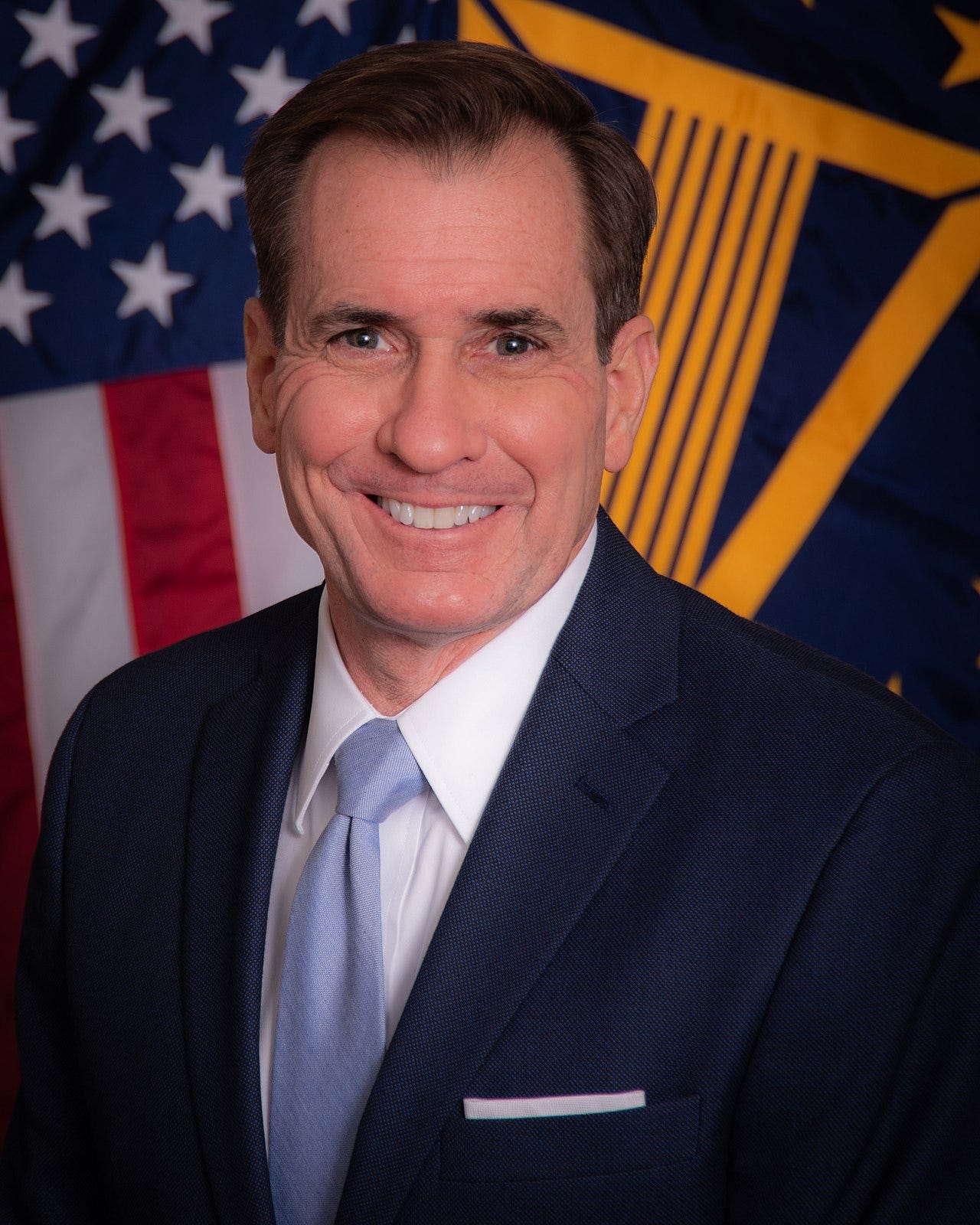President Biden has declared an emergency in Florida due to Tropical Storm Debby, which began on August 1, 2024. This declaration authorizes federal assistance, coordinated by FEMA, to support state, tribal, and local response efforts. The assistance aims to alleviate the hardship caused by the storm, protect public health and safety, and prevent further catastrophe. Federal funding will cover 75% of the costs for emergency protective measures, including mass care, evacuation, and shelter support in affected counties across the state.
White House National Security Communications Adviser John Kirby appeared on Fox News Sunday and provided detailed insights into several critical issues related to U.S. foreign policy and national security. Discussing the U.S.-Israel relationship, Kirby highlighted that President Biden's administration is deeply committed to supporting Israel's defense amid ongoing tensions in the region. This commitment was emphasized in the context of President Biden's recent meeting with Israeli Prime Minister Benjamin Netanyahu, where the leaders discussed progress toward a ceasefire. Kirby stressed that the U.S. continues to believe a ceasefire is the best solution to end the conflict and that the gaps between the parties are narrow enough to potentially reach an agreement.
However, Kirby also acknowledged the increasing tensions in the region, with Iran threatening retaliation, which has prompted the U.S. to deploy additional military assets, including warships and fighter jets, to the area. He explained that these moves are precautionary, ensuring that the U.S. is prepared to defend not only Israel but also its own national security interests. Kirby underlined the seriousness of threats from Iran, indicating that the U.S. takes such statements from Iranian leaders very seriously and is ready to respond if necessary.
Kirby also addressed reports suggesting tension between President Biden and Prime Minister Netanyahu. When asked about a report from Axios that claimed President Biden warned Netanyahu against further escalation, Kirby emphasized that the U.S. has been consistent in its message of not wanting the conflict to escalate into a wider regional war. He reiterated that the U.S. has demonstrated its support for Israel not just through rhetoric but through concrete actions, such as providing military support when Iran launched missiles and drones toward Israel.
Shannon Bream also questioned Kirby on the recent decision by the U.S. Secretary of Defense to rescind a plea deal that would have spared the 9/11 plotters the death penalty. Kirby clarified that this decision was made independently by the Secretary of Defense, within his authority, and was not a directive from President Biden. He acknowledged the pain and frustration of the families of 9/11 victims but emphasized that the administration is committed to ensuring justice is served.
The interview also touched on the recent U.S.-Russia prisoner exchange, in which an American was brought home in exchange for a Russian detainee. Kirby defended the exchange, stating that the administration makes no apologies for bringing innocent Americans home, even if such deals are controversial. He pointed out that previous administrations have also engaged in similar exchanges, and these are difficult decisions that must be made in the interest of securing the safety of American citizens.
Finally, Kirby provided an update on ongoing efforts to secure the release of Mark Fogle, an American detained in Russia. While Fogle was not included in the recent exchange, Kirby assured that the U.S. government remains actively engaged in negotiations to bring him home. He noted that each exchange provides new insights into the perspectives of the other side, which the U.S. will use in continued efforts to secure Fogle's release. Throughout the interview, Kirby underscored the administration's commitment to both defending national security and securing the safe return of Americans detained abroad.
In an interview on CBS's Face The Nation, Deputy National Security Adviser Jonathan Finer discussed several pressing global issues. He highlighted the U.S. government's decision to advise its citizens to leave Lebanon due to the heightened risk of conflict between Israel and Hezbollah. Although the Biden administration is not predicting an immediate escalation, Finer emphasized that they are preparing for any eventuality, including the possibility of a second front opening up in Lebanon. He also explained the recent deployment of additional U.S. military assets to the Middle East, which is aimed at deterring threats to Israel and preventing a broader regional conflict.
Finer addressed the recent prisoner swap with Russia, noting the exclusion of Marc Fogel and reiterating that efforts to secure his release continue daily. The administration is implementing measures to prevent future unlawful detentions of Americans abroad, including travel advisories and the use of sanctions. Regarding the Israel-Hamas ceasefire negotiations, Finer acknowledged that recent assassinations of Hamas and Hezbollah leaders have complicated the talks. Still, he emphasized that the U.S. remains focused on de-escalation, defending Israel, and securing the release of hostages.
In discussing Venezuela's recent election, Finer stated that the U.S. recognizes opposition candidate Edmundo Gonzalez as the winner, based on various data sources. The U.S. is working with regional partners to pressure the Maduro regime to acknowledge the election results and transition back to democratic norms. Throughout the interview, Finer underscored the administration's commitment to diplomacy, de-escalation, and the protection of American citizens abroad.
White House National Security Communications Adviser John Kirby




